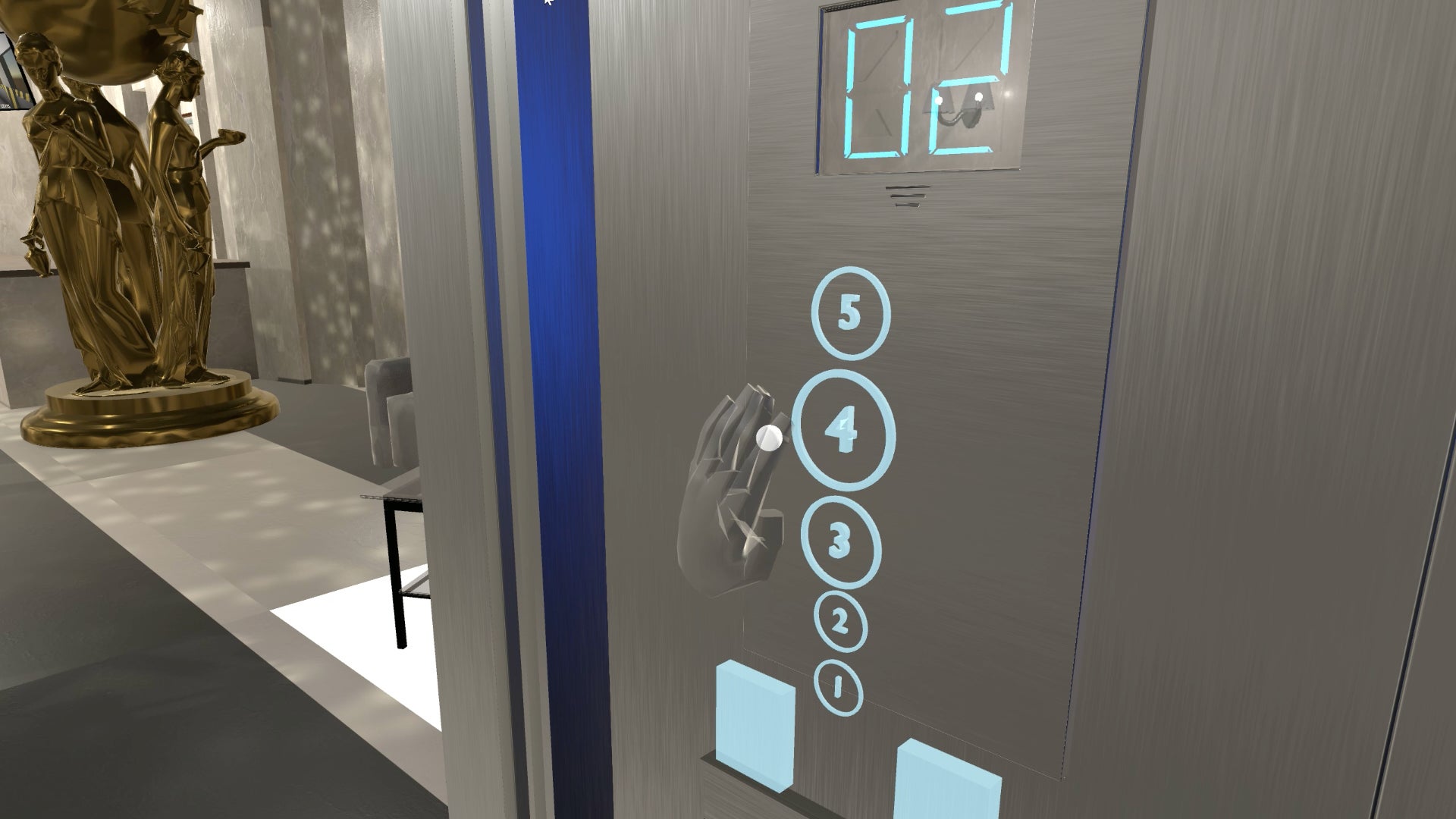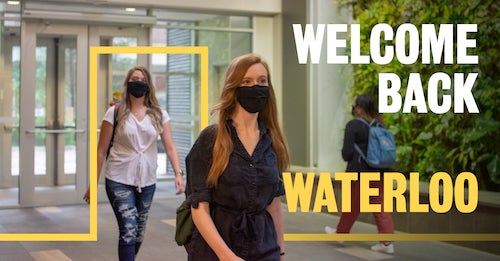Editor:
Brandon Sweet
University Communications
bulletin@uwaterloo.ca
New Academic Readiness Bursary for students with COVID-19 related expenses

The new Academic Readiness Bursary (ARB) is available to all students who will be registered in the fall 2020 term. Expenses that will be considered for the bursary (up to $500) will be those that are particularly related to studying remotely in the fall term, as a result of COVID-19. These types of expenses could include:
- computer upgrades, e.g., monitor, webcam, headset;
- quarantine-related expenses (considered on a case by case basis);
- Internet access.
Students may also seek support for unanticipated expenses directly related to advancing their academic readiness and ability to engage meaningfully with the University remotely as a result of COVID-19. These expenses may include such things as study space set-up or childcare costs.
Visit the undergraduate or graduate student funding and fee information pages for further details on eligibility and the application process. Deadline to apply is September 30.
This bursary has been created with significant support from the University of Waterloo as well as the support of many donors who have contributed to the COVID Student Emergency Support Fund.
Going up: touchless elevator concept highlights accessibility-based solution to fighting COVID-19

By Marisa Benjamin. This article was originally published on Waterloo Stories.
Motivated by prior research that reports elevator buttons as a huge source of contamination, a new study co-authored by Waterloo Faculty of Math student presents a touchless elevator concept to slow the spread of COVID-19.
Prior research shows that elevator buttons produce the highest rate of bacterial contamination (97 per cent) and can house more germs than toilet stall surfaces. However, for many people (especially health-care and front line workers), elevators are a daily necessity.
This realization prompted undergraduate Computer Science student Tanay Singhal and his research partner Mahika Phutane, a PhD student at Cornell University doing research in Accessibility and Human-Computer Interaction (HCI), to develop a touchless elevator concept that will slow the spread of COVID-19.
Their method will see elevator buttons replaced with haptic technology, which are touch sensations transmitted through the air. Mid-air haptics focus pressure on your hands (like pulses) using high sound frequencies called ultrasonic waves.
“With this technology, you can feel three-dimensional shapes in mid-air without actually touching anything,” Singhal says, a Research Intern for the Haptic Computing Lab at the Games Institute. “When you press an elevator button, you will feel touch sensations to indicate that you pressed it.”
The touchless elevator concept is designed for accessibility and inclusivity, with tactile braille touch sensations for the visually impaired, audio feedback, intuitive gestures for opening and closing doors and button magnifications for improved accuracy.
“When creating something as critical to people’s everyday lives as an elevator, we must absolutely design with usability and inclusivity in mind from the very start,” Singhal says.
The research pair were motivated after seeing how temporary solutions for containing contamination on elevators during COVID-19 interfere with accessibility.
“I used an elevator to get to a dentist appointment and saw that the control panel was covered with a thick transparent plastic sheet,” Phutane says. “How can braille be felt through this covering?”
Singhal and Phutane have created a YouTube video to tell the story behind their decisions, including why the authors believe this design is about more than just elevators. They hope the project will act as a catalyst beyond elevator innovations and an innovation to what virtual interfaces could look and feel like.
“This is not just about elevators,” Singhal says. “This is about a future of contactless public interfaces freed from the restraints of the physical world, designed with touch feedback and accessibility in mind.”
So others can benefit from their findings and research, the team has shared their source code for this concept, which is available on GitHub.
Updates to mandatory mask guidelines

This is a reminder that face coverings are required in common indoor spaces on campus.
"If you are approved to return to campus, you must wear a face covering in common areas of university buildings," says a memo from Kate Windsor, circulated to employees and graduate students on Friday.
"After listening to feedback from the campus community and discussing further with medical consultants, we have made some changes to our guidance on face coverings:
- In addition to corridors, lobbies, washrooms, elevators and meeting rooms, the common indoor areas where masks are required now also include classrooms and teaching labs.
- Research labs are considered employee-only spaces. Supervisors will set the expectation with their teams based on physical setup and lab activities.
- The exception concerning hearing impairments only applies to the person speaking to the person with the hearing impairment, where the ability to see the mouth is essential for communication.
A face covering can be a medical or non-medical mask or other covering, including a bandana, scarf or other fabric that covers the nose, mouth and chin to create a barrier to limit the transmission of respiratory droplets. Learn more on the face coverings webpage.
"If you are working from home, please continue to do so until you receive further direction from your manager or supervisor," writes Windsor. "The University’s Return to Campus working group has been reviewing faculty and unit proposals to manage more people in certain functions and roles returning to campus starting in August. Each department head is now finalizing these plans for their units and employees. We will soon share more details about these plans and how we are prepared to safely welcome back to campus the expanding numbers of students as well as faculty and staff who are approved to return."
If you have questions, please contact safety@uwaterloo.ca.
Notes after a long weekend
Plant Operations has announced that the sidewalk between the Mike & Ophelia Lazaridis Quantum-Nano Centre and the Student Life Centre will be closed for the next two weeks for sidewalk repair.

Are you interested in entrepreneurship and science? Do you have an idea? If so, come by (virtually, of course) and chat with the Science Innovation Hub (SIH) Advisory team to get some feedback. Monthly sessions are hosted on WebEx at 10:00 a.m. on the first Wednesday of the month. The next session is scheduled for Wednesday, August 5. Please RSVP.
Office closure
Campus Wellness will be closed today from 2:30 p.m. onward, reopening on Wednesday August 5.
Links of the day
30 years ago: Iraq invades Kuwait
When and Where to get support
Students can visit the Student Success Office online for supports including academic development, international student resources, leadership development, exchange and study abroad, and opportunities to get involved.
Instructors can visit the Keep Learning website to get support on adapting their teaching and learning plans for an online environment. The following workshops are current offerings from the KL team (CTE, CEL, ITMS, LIB):
Getting Ready to Facilitate Online Courses: TA Training, beginning July 13.
New Faculty Teaching Days, Tuesday, August 4, 1:00 p.m. to Wednesday, August 12, 3:00 p.m.
Remote Course Design Essentials, Wednesday August 5, 8:30 a.m. to Tuesday, August 11, 4:30 p.m.
Employees can access resources to help them work remotely, including managing University records and privacy of personal information
Interested in learning more about engaging your students in an online course? The Centre for Extended Learning has created a new resource for you called "Fostering Engagement: Facilitating Online Courses in Higher Education"
ThisOpen Educational Resource was designed for post-secondary instructors and teaching assistants who would like to better understand the critical role of facilitation in online course delivery, and build practical skills and strategies that are relevant, effective, and authentic.
Here are some tips for staying healthy while working from home.
The Writing and Communication Centre has gone virtual. We have many online services to help you meet your goals, including: Virtual Pre-booked and Drop-in appointments, Online workshops, Virtual Grad and Faculty Writing Cafés, Instagram Live Q&A sessions, Live PJ-Friendly Write-ins, Online learning resources, and Online programming for Master’s and PhD students. Whatever you’re working on, we’re here to help! Visit our website for more information.
We understand that these circumstances can be troubling, and you may need to speak with someone for emotional support. Good2Talk is a post-secondary student helpline based in Ontario, Canada that is available to all students.
If you feel overwhelmed or anxious and need to talk to somebody, please contact the University’s Campus Wellness services, either Health Services or Counselling Services. You can also contact the University's Centre for Mental Health Research and Treatment.
The Library has published a resource guide on how to avoid information overload.
The Faculty Association of the University of Waterloo (FAUW) continues to advocate for its members. Check out the FAUW blog for more information.
The University of Waterloo Staff Association (UWSA) continues to advocate for its members. Check out the UWSA blog for more information.
WUSA supports for students:
Food Support Service food hampers are currently available from the Turnkey Desk on weekdays from 9:00 a.m. to 4:00 p.m. in the Student Life Centre. If you have any questions please email us at foodsupport@wusa.ca.
MATES – Providing general online Peer Support via Skype to undergraduate students. To set up an appointment, please go to: https://wusa.ca/peersupport
Glow Centre - Providing online Peer Support for the LGBTQ2+ community via Skype to Undergraduate students. To set up an appointment, please go to: https://wusa.ca/peersupport
The Women’s Centre– Providing online Peer Support via Skype to undergraduate students. To set up an appointment, please go to: https://wusa.ca/peersupport
RAISE– Providing online Peer Support via Google to undergraduate students. To set up an appointment, please go to: https://wusa.ca/peersupport
The Bike Centre – Now open by appointment for your bicycle repair and rental needs in the Student Life Centre. For more information or to schedule an appointment, please go to: https://wusa.ca/bikecentre
Centre for Academic Policy Support - CAPS is here to assist Waterloo undergraduates throughout their experience in navigating academic policy in the instances of filing petitions, grievances and appeals. Please contact them at caps@wusa.ca. More information at http://wusa.ca/caps
WUSA Commissioners who can help in a variety of areas that students may be experiencing during this time:
- Equity – equity@wusa.ca
- Co-op and Experiential Affairs – coop.affairs@wusa.ca
WUSA Student Legal Protection Program- Seeking legal counsel can be intimidating, especially if it’s your first time facing a legal issue. The legal assistance helpline provides quick access to legal advice in any area of law, including criminal. Just call 1-833-202-4571.
Empower Me is a confidential mental health and wellness service that connects students with qualified counsellors 24/7. They can be reached at 1-844-741-6389.
When and Where (but mostly when)
Healthy Warriors at Home. Free programming including Online Fitness, Personal Training, Health Webinars, Personalized Nutrition and more. Open to students, staff, faculty and alumni. Register today.
Waterloo Warriors Online Hockey Skills Camps. Designed to provide a fun, inclusive and safe atmosphere where youth can take part in skill development and team building. Age 7-9 and 10-12. Only $50/week and includes 5 x 1 hour sessions. Register today.
Warriors Basketball Web Workouts. Register today to gain access to online content that is guaranteed to help you improve your basketball skills; regardless of your current skill level. Open to all ages. New content added weekly throughout the year for only $100. Register today.
Warriors Big 6 Summer Challenge. Weekly challenges from July 13 to August 23 focusing on Movement, Sleep, Hydration, Nutrition, Apps and Choose your own adventure. Post your photo and tag @WlooRec on Instagram for a chance to win a $100 box from truLOCAL each week as well as $100 from Mel’s Diner for our grand prize winner. Stay healthy Warriors!
Q&A with the Science Innovation Hub Advisory Team, Wednesday August 5, 10:00 a.m.
New Faculty Online Social, Tuesday, August 11, 11:00 a.m.
Science Innovation Hub Skills Development Workshop: Scientific Project Planning, Wednesday, August 12, 3:00 p.m.
CBB-[CREATE Series]- Engagement with the FDA on Premarket Submissions and Inspections by Yuan Fang], Friday, August 14, 2:00 p.m. to 3:00 p.m. Online via Webex.
PhD oral defences
School of Public Health and Health Systems. Moutasem Zakkar, "Exploring the Utility of Patient Stories on Social Media for Healthcare Quality Improvement." Supervisors, Craig Janes, Samantha Meyer. Email AHS Graduate Administration: ahs.graduate.administration@uwaterloo.ca for a copy. Oral defence Tuesday, August 4, 1:00 p.m.
Computer Science. Pavel Valov, "Transferring Pareto Frontiers across Heterogeneous Hardware Environments." Supervisor, Krzysztof Czarnecki. Thesis available from MGO - mgo@uwaterloo.ca. Oral defence Wednesday, August 5, 9:00 a.m.
Combinatorics and Optimization. Jason LeGrow, "Design, Analysis, and Optimization of Isogeny-Based Key Establishment Protocols." Supervisors, David Jao, Michele Mosca. Thesis available from MGO - mgo@uwaterloo.ca. Oral defence Wednesday, August 5, 9:00 a.m.
School of Public Health and Health Systems. Arsalan Afzal, "Developing and Evaluating an Integrated Rehabilitative Model of Care for Stroke Patients in the Home and Community Care Sector." Supervisors, Paul Stolee, George Heckman. Email AHS Graduate Administration: ahs.graduate.administration@uwaterloo.ca for a copy. Oral defence Wednesday, August 5, 10:00 a.m.